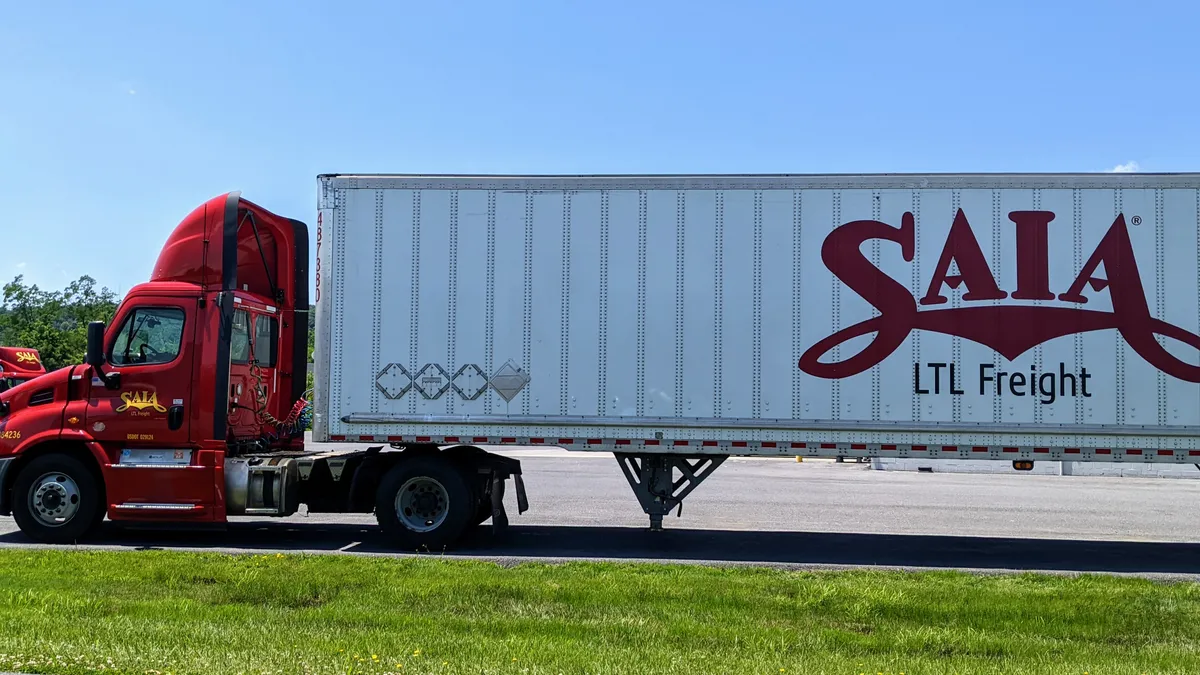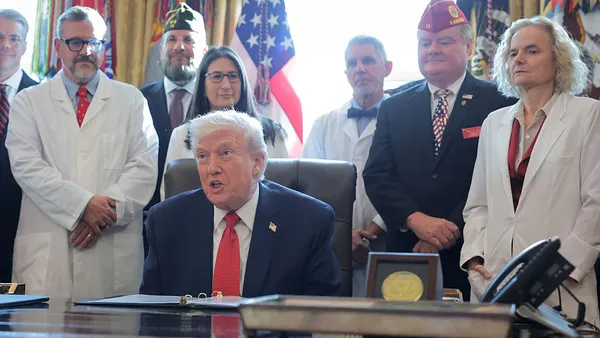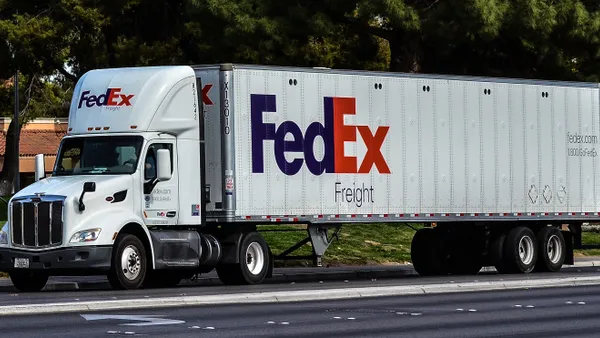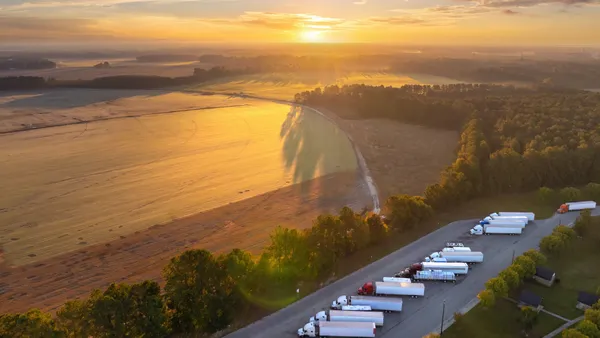Dive Brief:
- J.B. Hunt has been juggling plans and reallocating resources, in the wake of the coronavirus pandemic. In an April 14 earnings call, company officials said a decline in some of its business can be balanced by a surge in other segments, which CEO John Roberts called "pivoting resources within and across segments." In particular, J.B. Hunt's food-related business went up 16% and agricultural deliveries were "consistent" during the quarter ended March 31, while business regarding office furniture and automotive supplies fell.
- The company said it has a strong cash and credit position, with up to $1 billion in potential credit. But the coronavirus crisis has caused the company to reconsider growth plans, such as the expansion of a Southwest terminal in Q2. The project will be put on hold.
- Costs in the quarter are difficult for the company to gauge, said CFO John Kuhlow. "However, we have identified approximately $15 million of specific costs in the first quarter that were not planned going into the quarter," said Kuhlow. "The largest of which was our special bonus for approximately $12 million." The company handed out bonuses of $500 to drivers and support staff, it announced on March 23.
Dive Insight:
The COVID-19 pandemic has rocked the U.S. economy but caused a surge in trucking demand in the first three weeks of March. J.B. Hunt saw revenue increase by 9% in Q1 year over year, as operating income dropped by 8%. Because J.B. Hunt is one of the first carriers to report, this could be a sign that, while profits might get nicked, revenues for the first three months of 2020 may go up, if only because of panic-buying that spread in the first three weeks of March.
Roberts said he sees this environment "showing near-term disruption and turbulence," but expects the longer-term to present opportunities to capitalize on existing priorities, including expansion of final mile services. J.B. Hunt acquired "big and bulky" last-mile provider RDI Last Mile Co. on Dec. 31, for an undisclosed sum.
Still, company executives talked about managing risks and adjusting plans as the COVID-19 pandemic changes the U.S. economy almost daily. J.B. Hunt's Intermodal segment volume, hurt by a slowdown at ports, expects double-digit declines in Q2, according to EVP of Intermodal Darren Field.
J.B. Hunt officials updated 2020 capital expenditures in the call. They noted previous forecasts to be between $675 million and $700 million. The coronavirus has caused a reduction in the forecast to between $575 million and $600 million. Capital expenditures were about $425 million to $450 million of maintenance, and the remainder is growth, said Kuhlow.
Kuhlow said J.B. Hunt is in a good liquidity position, with $48 million in cash, $750 million of borrowing capacity and an option to take that to $1 billion. But the "largest risk" going into Q2 is customers' liquidity and ability to pay, Kuhlow said. The risk has led to J.B. Hunt to watch the situation very closely.
"We monitor working capital on a daily basis and are in frequent communication with our customers and providers," Kuhlow told investors and analysts. "We're beginning to see an increase in certain customers reaching out to discuss liquidity concerns, and while we understand their liquidity issues, we have to enforce our terms that we have agreed to. Our carriers and suppliers expect us to pay according to returns, and we must expect the same from our customers."








